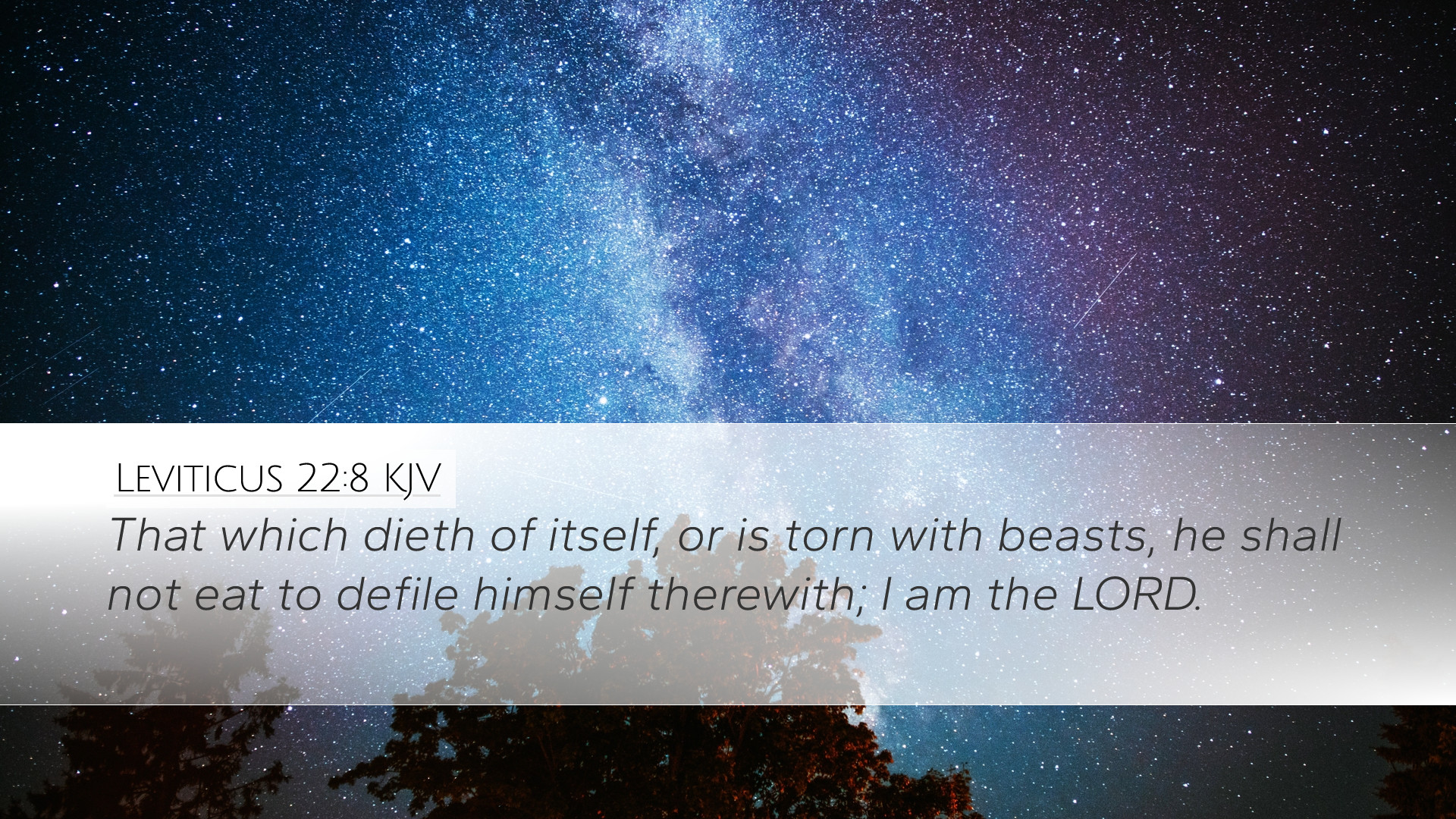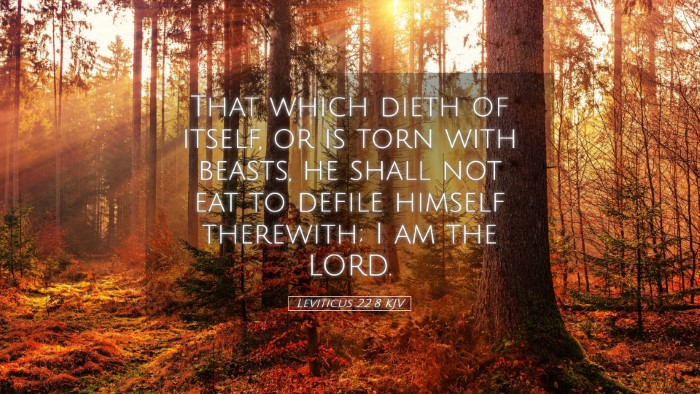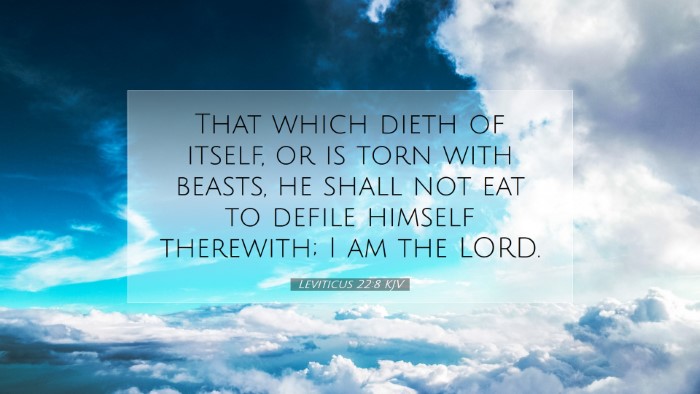Commentary on Leviticus 22:8
Verse: “He shall not eat of the holy thing; because he has his uncleanness upon him. I am the LORD.” (Leviticus 22:8, KJV)
Introduction
The book of Leviticus contains the laws and regulations that governed the ritual, moral, and social conduct of the Israelites. In Leviticus 22:8, the focus is on the sanctity of offerings and the conditions under which priests and other individuals may partake of the holy things. This verse offers insight into the broader themes of holiness, purity, and the divine expectations of worship, which are seminal for the faith and practice of God’s people.
Key Themes
- Holiness and Its Implications: The concept of holiness is foundational in Leviticus, indicating that certain offerings and sacrifices must be treated with utmost respect. Failure to recognize this can lead to severe consequences.
- The Importance of Purity: The stipulation that an individual with uncleanness cannot partake of holy things emphasizes the significance of spiritual and physical purity in approaching God.
- The Sovereignty of God: The phrase “I am the LORD” underscores God’s authority and the need for His people to obey the commandments regarding holy practices.
Commentary Insights
Matthew Henry’s Commentary
Matthew Henry, in his comprehensive commentary, highlights that this verse points to the seriousness with which God regards holiness. He notes that the priests, who were tasked with the sacred duties, are expected to be examples of purity. The underlying principle is that one must be clean and consecrated before approaching sacred rites, as uncleanness disrupts communion with God.
Albert Barnes’ Notes
Albert Barnes emphasizes the practical implications of this command. He notes that the uncleanness referred to can arise from various circumstances, including physical ailments or other conditions of life that rendered a person ceremonially unclean. Barnes infers that this command underscores the broader idea that approaching God requires preparation and respect. Barnes remarks that the holy things represent a spiritual nourishment that is conditional upon one’s status of purity.
Adam Clarke’s Commentary
Adam Clarke offers a theological reflection on the implications of this verse. He elaborates that this command serves as a stark reminder of the holiness of God and the reverence that must characterize worship. Clarke expounds on the symbolism in the requirements, suggesting that God’s holiness is so profound that it cannot be approached with impurity, reinforcing the idea that adherence to divine standards must guide worship practices.
Theological Implications
This verse reveals profound theological insights regarding God’s nature and the human condition. The insistence on purity reflects the divine attribute of holiness, indicating that God cannot engage with impurity. This requirement for holiness among the priests serves as a precursor to understanding the New Testament conception of purity through the life and sacrifice of Jesus Christ, the High Priest, who offers true cleansing from sin.
Application for Modern Believers
In contemporary Christian faith, the principles derived from Leviticus 22:8 invite believers to consider their own spiritual state when approaching God in worship. Pastors, students, and theologians can draw parallels to the necessity of being spiritually prepared to participate in the life of the community of faith. The call to holiness is as relevant today as it was in ancient Israel, where participation in the sacramental life demands an acknowledgement of inner purity before God.
Conclusion
Leviticus 22:8 serves as a vital reminder of the holiness of God and the expectations placed upon His people. Through the lenses of Matthew Henry, Albert Barnes, and Adam Clarke, we see a multifaceted view of holiness and purity in worship. This verse calls for a deepened understanding of the sanctity of God's offerings and the importance of preparing oneself to engage meaningfully in the life of faith. As believers reflect on these insights, they are called to pursue inner purity that honors God’s holiness, thereby enriching their worship and sustaining their communal life.


